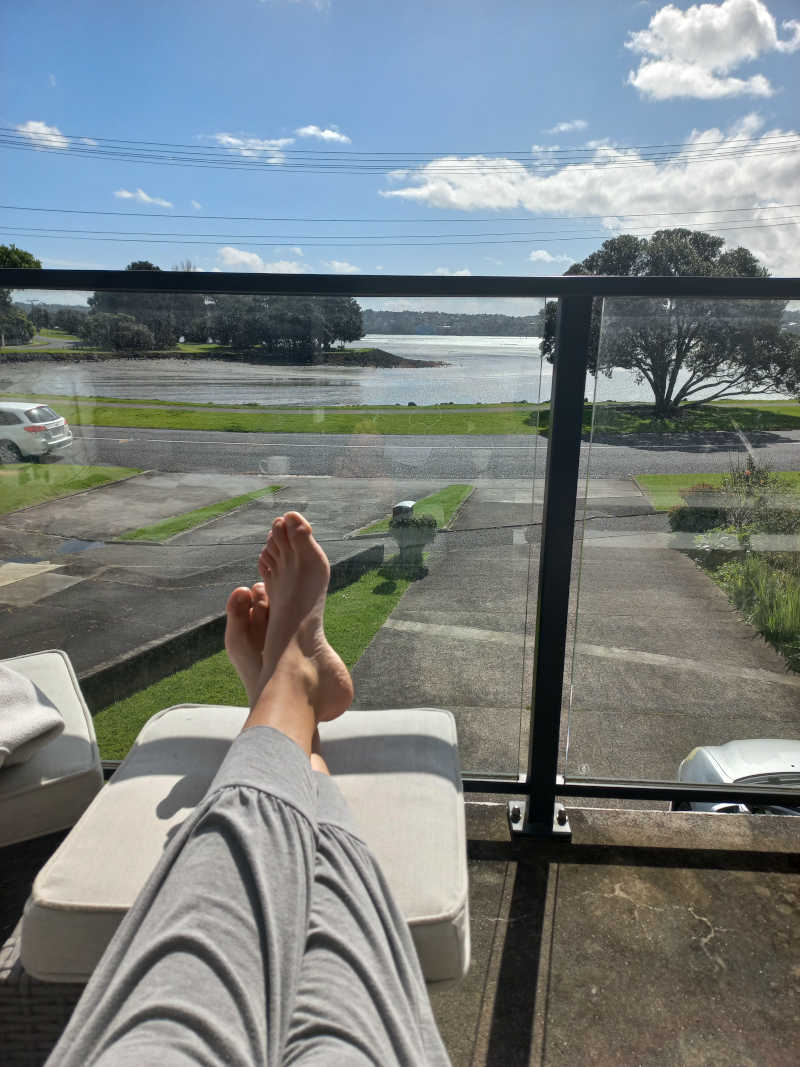The jolly season can be such a fun time of the year and also equally as stressful for many families. Parents are not just trying to wrap up with their jobs for the end of the year to spend some well-deserved RNR with the kids, but so is every club, organisation, company, and group around them too, resulting in packed calendars, late nights, and waaaay too much food and drink while trying to tick off all those things on our already overflowing to-do lists.
Our mental and physical load tends to increase because of all this busyness and stress levels rise. But stress isn’t all bad. In fact, there are two types of stress: good stress and bad stress.
So what’s the difference?
Good stress and bad stress
Good stress, also called eustress, might be felt when you ride a roller coaster, compete in a game, or go on a first date. Your pulse quickens and your hormones surge, but there is no threat or fear. Good stress is about excitement and anticipation for pleasure. Good stress helps us move towards a goal, something that takes us out of our comfort zone, which generally ends in some kind of pleasure.
Good stress inspires and motivates you, focuses your energy and enhances performance. It helps us meet our daily challenges. I would even go as far as to say that good stress is vital for a healthy life. Yep, that’s right!
So … what is bad stress then? Well, bad stress is the kind of stress that wears you out. It leaves you jittery and somewhat depleted and is harmful to your health under certain circumstances. Bad stress can lead to anxiety, confusion, poor concentration, decreased performance, overwhelm and burnout. Bad stress is purely about survival, moving away from a situation that is perceived as painful.
Bad stress can be short-term (acute) or long-term (chronic). Acute stress doesn’t take a heavy toll on your body if you can find ways to relax quickly and get yourself back to equilibrium. Chronic stress, however, when you repeatedly face stressors or for long periods of time, can take a heavy toll on your body and mind.
Chronic stress can cause headaches, insomnia, weight gain, anxiety, pain, and high blood pressure amongst other things. Some common chronic stressors include toxic relationships, money problems, work issues, unmanaged health or mental health problems, racial inequities or perceived loss.
As much as we would like, it’s virtually impossible to eliminate bad stress from our daily lives completely.
What we can do though is increase our resilience to the stresses of daily life. Stress resilience is not just about the ability to resist or avoid stress but also about the ability to recognise and acknowledge that a situation has become stressful and being able to choose a response that leads to growth. Or in other words, stress resilience is the process of adapting well in the face of adversity, trauma, tragedy, threats or significant sources of stress.
Many of us are already incredibly resilient in so many ways. So, to help you be even more resilient to stress and overwhelm during the silly season this year, here are 10 tips on how to survive parenting during Christmas time without dialling down on the fun.
1. Schedule family rest time
Humans are like tuning forks. If one person in the family is feeling off, tired or stressed, all the others feel it too, no matter their age. Making time for rest periods is really important to keep the family unit settled and create some breathing room amongst the busyness.
2. Tag team
Share the load within the family and friends group and alternate going to the Christmas functions. This is a great way of spending quality time with family members while the other adults or kids can get a rest or get tasks ticked off the to-do list.
3. Sticky note lists
Instead of having your to-do list on your phone, calendar or pieces of paper make getting organiaed a fun affair with coloured sticky notes. That way you can see the bigger picture of your commitments easily and make better decisions on what is realistic for you and your family. Writing down what swirls around in your thoughts is always a great way of clearing up your mental space. In the case of sticky notes, scrunching up the little paper once the task is complete is incredibly satisfying for adults and kids alike.
4. Make time for play and bonding with your kids

Let’s face it, kids need attention – uninterrupted bonding time to chat, laugh, cuddle and play. Prioritise this even in the Christmas rush and you will find your family more settled and more resilient to the busyness.
5. Parents, treat yourself

If you can, shout yourself a massage, a night away, a relaxed brunch or dinner with some friends or a morning/evening in bed alone. You-time, a time where you do activities that fill your cup, is such an important part of self-care and regular self-care increases your resilience to stress. Giving ourselves time out to just be is beneficial for the whole family.
6. Be mindful of what you consume
Alcohol and heavy, sugary, carby foods are part of the Christmas fun so by all means enjoy. However, allow yourself to tune in with your body and give yourself rest days in between the indulging. Even though we are busy this time of the year, it’s the choices we make throughout this time overall that have an influence on how good we feel mentally, physically and emotionally. Make sure you keep your vegetable and fruit consumption up, drink loads of water and keep your body moving daily, even if it’s just a walk around the block.
7. Say no thank you
Be realistic and mindful with what you can commit to in a day and what really brings you and your family joy. Overcommitting is one of the main stress points for parents during the silly season. Not only are you managing your own life demands, you are also managing your kids’ ones too. Don’t forget, you are already doing a mammoth job and it’s okay to not do it all!
8. Connect to nature
Go for a bush walk, put your feet in the grass or sand and get some fresh moving air and sunlight on your skin, ideally daily. Not only is sunlight and fresh air essential for optimal physical health, but it also has a huge impact on our mood too. Connecting to nature regularly helps settle and ground us and is the perfect stress buster.
9. Meditate
If this is not something you do already I can highly recommend this practice, especially throughout stressful periods. Mornings or late evenings before bed are best but any time is better than no time. There are plenty of apps and YouTube videos out there that make this super easy. Just five minutes of meditation a day or even just a few times a week will make a world of difference to your resilience to stress throughout all seasons.
10. Breathe deeply
When we are stressed we shallow breathe. This is a basic stress response of our body. Breathing deeply in through the nose and out through the mouth three times over whenever you notice feeling anxious or stressed, helps your parasympathetic nervous system to kick in letting your body know it’s safe to feel calm again. This can be done as many times as you need whenever required.
I, my family and loved ones have found these tips to be hugely helpful throughout all busy periods of life. No matter what you have got going on, prioritising you and your family’s well-being is important.
I was once told that what our children see us do has just as much impact on them as what they hear us say. So let’s lead by example and enjoy the Christmas season with less stress so they may grow up to enjoy the festive season too.
Article written by Sophie K for Kidspot

About Sophie K
Sophie is a coach and creator of The Thrive Guide, a mother of two, a joy seeker and a lover of adventure. She helps her fellow humans to find more time, confidence and ultimately joy in their everyday lives through empowering them at their core.
She knows what it feels like to be stressed and overwhelmed; almost constantly. Feel like there aren’t enough hours in the day to do everything. Between her professional and personal life in the past there just wasn’t enough time or energy left for joy. The result? Life often seemed hard and complicated. Her mental and physical health suffered. The people she loved the most ended up getting the worst of her. Including herself.
It took a major life event for her to realize that she needed more. She wanted to feel at ease, be the best version of herself for her kids, make time for what was important to her and follow what brought her joy and happiness deep down. Life is just too short to spend it feeling unfulfilled.
She loves to laugh and see the funny side of life and has a deep interest in people, their stories and what makes them tick. She has been running her business since 2020 and is excited to help make this world a better place for all our generations to come.
Visit her website www.sophiek.co.nz for more or get in touch via hello@sophiek.co.nz to book a complimentary chat.







Leave A Comment
You must be logged in to post a comment.